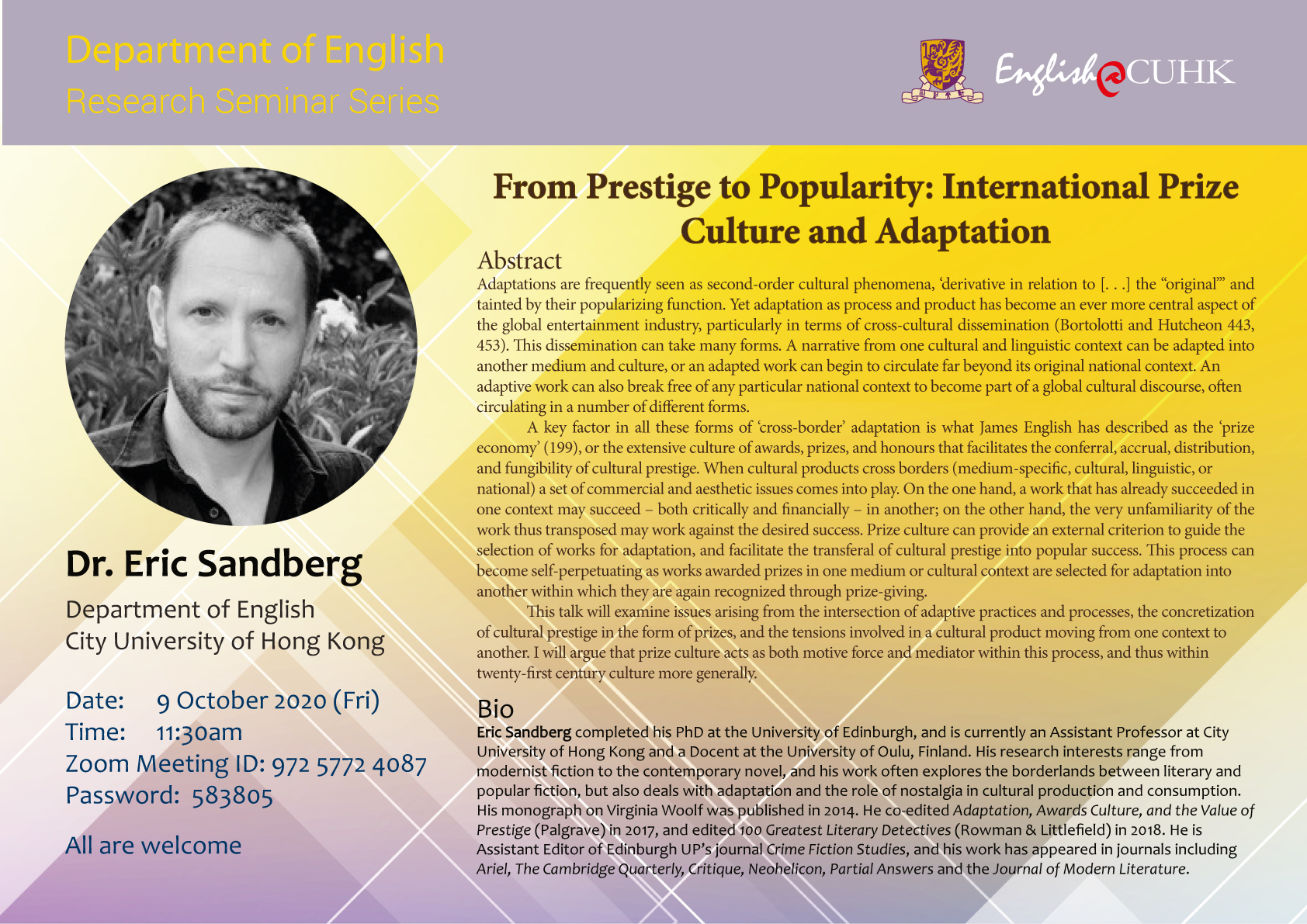From Prestige to Popularity: International Prize Culture and Adaptation
Prof. Eric Sandberg
Department of English
City University of Hong Kong
Abstract:
Adaptations are frequently seen as second-order cultural phenomena, ‘derivative in relation to [. . .] the “original”’ and tainted by their popularizing function. Yet adaptation as process and product has become an ever more central aspect of the global entertainment industry, particularly in terms of cross-cultural dissemination (Bortolotti and Hutcheon 443, 453). This dissemination can take many forms. A narrative from one cultural and linguistic context can be adapted into another medium and culture, or an adapted work can begin to circulate far beyond its original national context. An adaptive work can also break free of any particular national context to become part of a global cultural discourse, often circulating in a number of different forms.
A key factor in all these forms of ‘cross-border’ adaptation is what James English has described as the ‘prize economy’ (199), or the extensive culture of awards, prizes, and honours that facilitates the conferral, accrual, distribution, and fungibility of cultural prestige. When cultural products cross borders (medium-specific, cultural, linguistic, or national) a set of commercial and aesthetic issues comes into play. On the one hand, a work that has already succeeded in one context may succeed – both critically and financially – in another; on the other hand, the very unfamiliarity of the work thus transposed may work against the desired success. Prize culture can provide an external criterion to guide the selection of works for adaptation, and facilitate the transferal of cultural prestige into popular success. This process can become self-perpetuating as works awarded prizes in one medium or cultural context are selected for adaptation into another within which they are again recognized through prize-giving.
This talk will examine issues arising from the intersection of adaptive practices and processes, the concretization of cultural prestige in the form of prizes, and the tensions involved in a cultural product moving from one context to another. I will argue that prize culture acts as both motive force and mediator within this process, and thus within twenty-first century culture more generally.
Bio:
Eric Sandberg completed his PhD at the University of Edinburgh, and is currently an Assistant Professor at City University of Hong Kong and a Docent at the University of Oulu, Finland. His research interests range from modernist fiction to the contemporary novel, and his work often explores the borderlands between literary and popular fiction, but also deals with adaptation and the role of nostalgia in cultural production and consumption. His monograph on Virginia Woolf was published in 2014. He co-edited Adaptation, Awards Culture, and the Value of Prestige (Palgrave) in 2017, and edited 100 Greatest Literary Detectives (Rowman & Littlefield) in 2018. He is Assistant Editor of Edinburgh UP’s journal Crime Fiction Studies, and his work has appeared in journals including Ariel, The Cambridge Quarterly, Critique, Neohelicon, Partial Answers and the Journal of Modern Literature.







